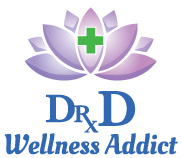“The good physician treats the disease; the great physician treats the patient who has the disease.”
William Osler
Let me be clear – I am not intending to play doctor, nor am I insulting the medical profession or my medical colleagues. However, my expertise and experience allows me to say that our healthcare system needs to change, and it needs to start with what we expect from ‘the doctor’.
I ask you to rethink your definition of doctor. The root word is Latin, meaning “to teach.” According to modern day Merriam Webster’s dictionary, the three relevant definitions of doctor include:
- A learned or authoritative teacher;
- A person who has earned one of the highest academic degrees (ex: PhD) conferred by a university;
- A person skilled or specializing in healing who holds an advanced degree and is licensed to practice.
A medical doctor, or a physician, is only one type of doctor. A physician has received his or her medical degree (MD) and is licensed to practice medicine. I am a doctor of pharmacy. I received my Doctor of Pharmacy and am licensed to practice pharmacy. The wellness leader Dr. William Cole received his Doctor of Chiropractic and is licensed to practice chiropractic. You get the idea.
Yet the term my doctor has been ingrained in society to mean a medical doctor, i.e. a physician. The average person has no training in medicine, and therefore relies on the expert, i.e. the medical doctor, to guide them. Our faith in ‘the doctor’ is so strong we have intensified our belief that the doctor is omnipotent regarding our health. The end result is a country dependent on a medical system that is often reactively treating the diseases it could be proactively preventing. Even worse, many of the common medications used in the Western Medical Model (WMM) actually worsen the underlying processes that cause these preventable diseases – and clinicians are often not trained on these side effects in school! Sounding a bit like a clinical paradox?
Our reactive system has unfortunately resulted in a medical model that has as much potential to harm as it does to heal. I have spent the last fifteen years studying, practicing, and teaching in some of the best medical institutions in the country as well as Europe. Currently, I spend my days working with national and international experts in the field of medicine, educating and liaising practice-changing research, publications, and guidelines.
My one piece of advice? Blindly trust no expert. Including me. The number of errors I hear about, mistakes I see, complications I prevent… I could write a book. I also often analyze how our standard of care actually promotes the diseases it’s treating. All this backwards practice makes sad sense given the paradoxical nature in which the WMM functions.
Let me be clear again- my intent is not to bash the WMM nor instill fear. Medicine, like any profession, is not perfect. Western medicine has its place, as it saves countless lives every day. I may see the downsides but I am also grateful for the benefits. After all, it’s my profession! When it comes to medication, emergency interventions, and surgeries, turn nowhere else than the WMM. However, changes need to be made. I am simply suggesting we start the process by changing the way we look at it.
A doctor is a trained expert who is there to teach you. As a professor, a core part of my teaching philosophy is that education is a two way street. My students and patients teach me just as much as I teach them. This is why I recommend having a treatment team you trust and respect with relationships that help you grow, heal, and flourish. Your medical doctor could and should be a part of that team. I will explain in future articles what, in my opinion, a good treatment team looks like, sharing some examples of my own, and of course offering insights from a top notch team right here on DrDWellnessAddict.com!
Regardless of who comprises your healthcare team, you can take back your healthcare autonomy through curiosity. The more you know, the more you can make evidence-based choices tailored to your individual needs. Ask questions. Do research. Don’t live by WebMD, but ask your doctor about the things you are learning. If you aren’t satisfied, keep asking. If it doesn’t feel right, get a second opinion. Each of us is not just a data point, a person to plug into a therapeutic algorithm, or just another example of ‘what I see everyday in my clinical practice.’ We are completely unique, beautifully complicated individuals, whose healthcare team should partner with us in achieving a healthy, happy lifestyle.
